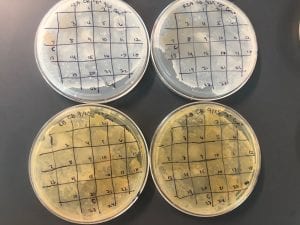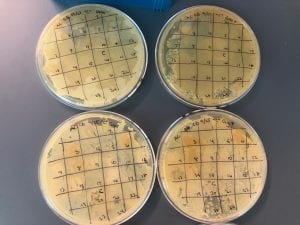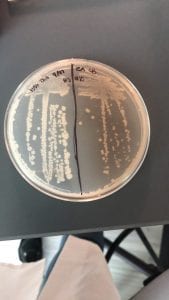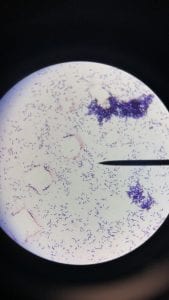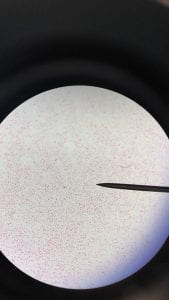These are my master patch plates from 9/17 and 9/25. The LB plates were labeled group “a”, the R2A plates were labeled group “b”, and the AC plates were labeled group “c”.
These are the patches from 9/25 from group a and b tested against the Gm+ tester strain E. raffinosus and the Gm- tester strain E. carotovora. No patches showed possible antibiotic production against them.
One set of these plates are patches from group c made on 9/25 against the Gm+ tester strain E. raffinosus and the Gm- strain E. carotovora. None of these patches showed possible antibiotic production so a new patch plate with different colonies from the original plate were made and tested against E. raffinosus and E. carotovora on 9/27. These patches also showed no possible antibiotic production.
Since no patches showed possible antibiotic production, all of those plates were tossed in the trash and I took two possible producers from Elizabeth and made this streak plate on 9/27 for further tests. After testing these two bacteria against all the tester strains I found that only #10 was a possible producer so I took this bacteria and two bacteria from Tommy and performed a PCR reaction with them. These PCR reactions were then run via gel electrophoresis and this showed that only the two cultures I got from Tommy contained the band we were looking for so I sent these two out to be sequenced.
I performed the Gram stain test on the two cultures and one of them ended up being Gm+ and the cells had a deep purple color and were rod shaped (above). This is a picture of one culture under 100x magnification.
The Gram stain test for the other culture showed that the cells were Gm- and the cells had a pink color and were oval shaped (above). This is also a picture under 100x magnification.


